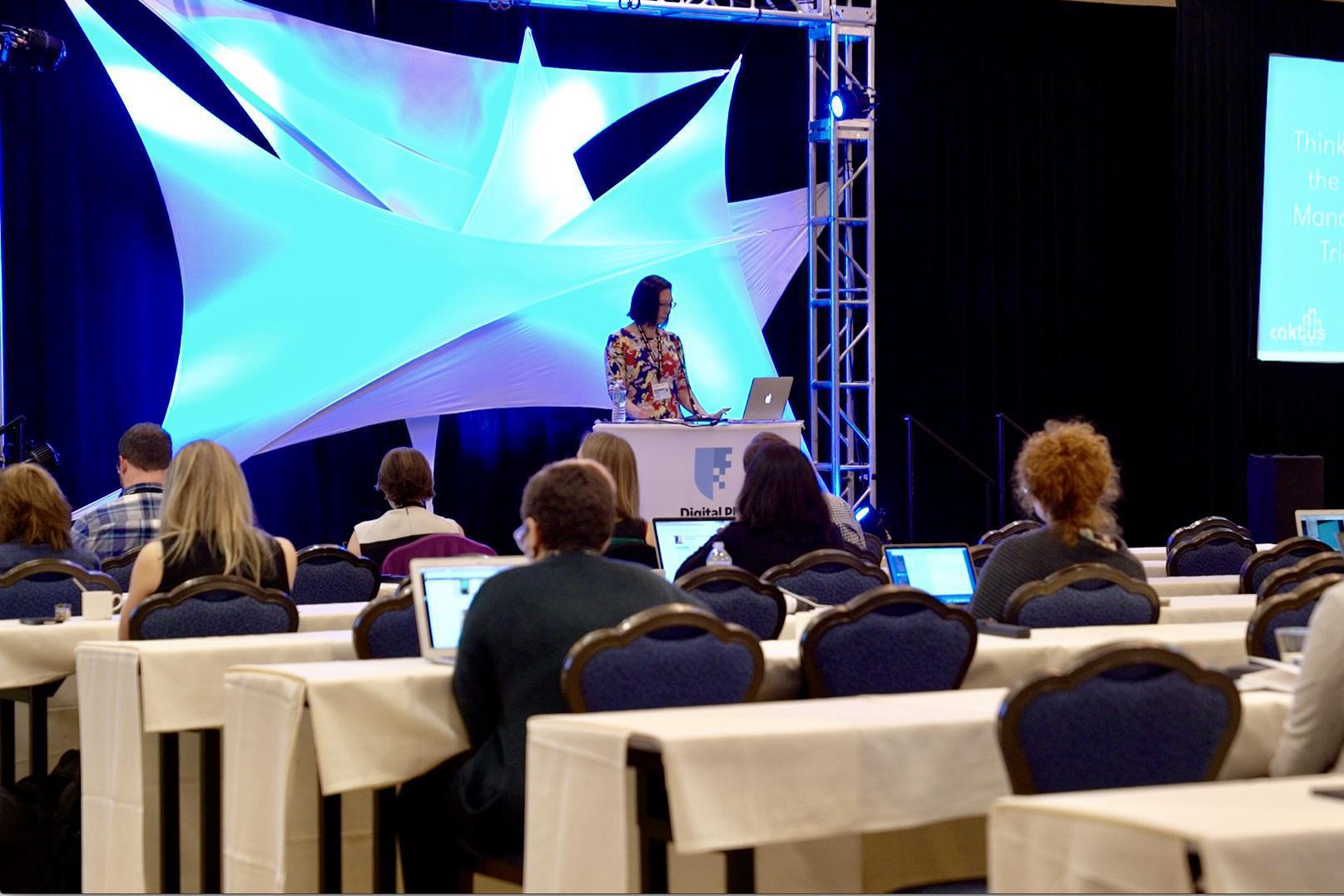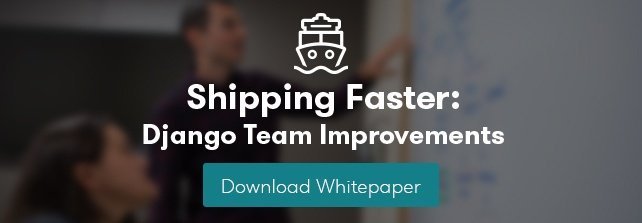
Photo of Elizabeth speaking to DPM 2016 Summit by David Jordan.
When I first became a digital project manager, I struggled to find professional resources. There was a plethora of information available for traditional project management, but not much specifically for digital project management. Luckily, a colleague recommended the Digital PM Summit, sponsored by the Bureau of Digital.
It's one of the first, and still one of the only, professional conferences in the United States for digital project managers, and it’s grown every year. I initially attended the Summit three years ago in Austin, TX and it was an eye-opening, informative, and motivational experience. I met many people who did the same work that I did! I don't know where they were hiding before, but I was thankful to finally connect with them. It was such a relief to learn that others had the same challenges that I did, and that I was not alone.
I attended the Summit every year since, and this year, I was invited to speak. I was one of twenty-two expert speakers and I was thrilled about the opportunity to present on one of the most important aspects of digital project management—relationships. I’ve found that positive working relationships are key not only to project success, but also to my success, my team’s success, and our client’s success. As project managers, we must focus on process and logistics to deliver quality projects on time, and all of that involves people.
Investing in Relationships is Key to Project Success
Projects are always about people, no matter where you work, and no matter what the project involves. Building positive working relationships can be challenging, but I’ve found that the best project managers invest in their team, clients, and stakeholders’ success, and not just in the project’s success. While it is possible to launch a project that successfully meets its goals, if the people involved are miserable, was it really a success? After all, the project is not going to pat you on the back, but the people involved would.
I became a better project manager when I realized the importance of relationships, and when I recognized how much I could impact the people around me. Several years ago, as a brand new PM, I didn’t have the confidence that I do now, and it was difficult for me to take the lead. After a couple years, and thanks in large part to the Digital PM Summit, through which I learned skills that I could apply on the job, I became a more effective PM. I’m more flexible and adaptable, which is key to collaboration, and my interpersonal communication skills have improved.
The importance of collaboration and communication were key points within my Digital PM Summit presentation, “Think Outside the Project Management Triangle.” The Project Management Triangle, or Iron Triangle, is a widely-known model of the typical constraints of project management that impact project quality—resources (budget and workers), project scope (features and functionality), and schedule (time and prioritization)—these are all components that project managers must consider and work with. In my experience, the Triangle is too limiting and overlooks relationships. The Triangle is a good basic model, but the best PMs think outside of the Triangle to positively leverage relationships in order to balance resources, scope, and schedule.

Approximately fifty project managers attended my talk at the Digital PM Summit on October 13, 2016. By that point, I’d worked at Caktus for four weeks, which impacted my presentation because it was the first time I’ve worked with external clients and the first time I wasn’t a lone PM.
As an established, full service Django shop, Caktus includes a team of trained PMs who provide professional project management services to clients. Working with other PMs helped me feel more at home at Caktus, and I learned a lot from them in a few weeks. For example, the PM team taught me about the Agile Scrum process, which I was familiar with, but never practiced before. Scrum includes a product owner who serves as an extension of the client, championing the client’s goals and priorities to the development team. At Caktus, project managers also act as product owners. During the Digital PM Summit, some attendees were curious about how I made the shift from working in-house to working with external clients, and how the Scrum process impacted my transition. I was happy to inform them that while working with external clients is different from working in-house, there are still similarities, and that Scrum had been a refreshing change for me.
Unity in the Project Management Community Raises our Standards
It’s not unusual for a PM to be a lone wolf, like I was in my last job where I was connected with only one other digital PM who was in a different department. We quickly became friends and confidants based on our shared experiences. As a new digital PM, support from others is critical to success, and I’m glad the Bureau of Digital, which hosted the Digital PM Summit, provides a platform for project managers to connect and share their knowledge during and after the conference. I was honored to support their mission with my own presentation, and as it turned out, relationship building was a main theme during this year’s Summit.
The Bureau of Digital’s leaders, Brett Harned, Carl Smith, and Lori Averitt have increasingly focused on building a supportive community of professional project managers through events like the Summit. This year, the conference brought together 223 talented individuals, and the conversations have not stopped, thanks to Slack, Twitter, and LinkedIn. The attendees are still sharing tips, tools, and strategies with each other, and they’re forming Meetup groups. Since digital project management is still evolving and growing, conversations and collaboration among practitioners and experts is crucial to creating a greater shared understanding of best practices and to raise industry standards as well as recognition, helping all of us to better serve our clients and teams. I’m thrilled to work at a place like Caktus that recognizes the value of digital project management, and supports my engagement within the PM community.
The relationships I’ve made and the community support that I’ve received via the Digital PM Summit has been integral to my growth and success as a digital project manager. I would not be where I am today, and I certainly would not have presented at the Digital PM Summit, without support. What it comes down to is that no matter who you are or what your job is, none of us work or live in a bubble, and none of us are an island. We depend upon others. Perhaps Carl Smith, one of the conference organizers, said it best: "When you invest in others, they invest in you.”
Additional Links
- My presentation on SlideShare
- Bureau of Digital Podcast: “The Value of Relationships in Project Management”. Interview with me before the conference.



